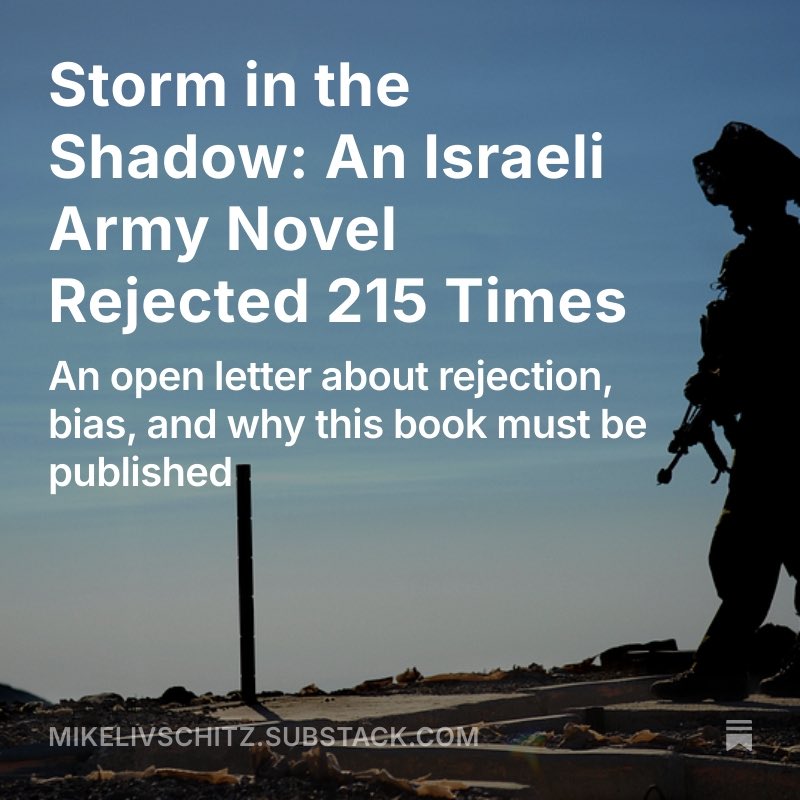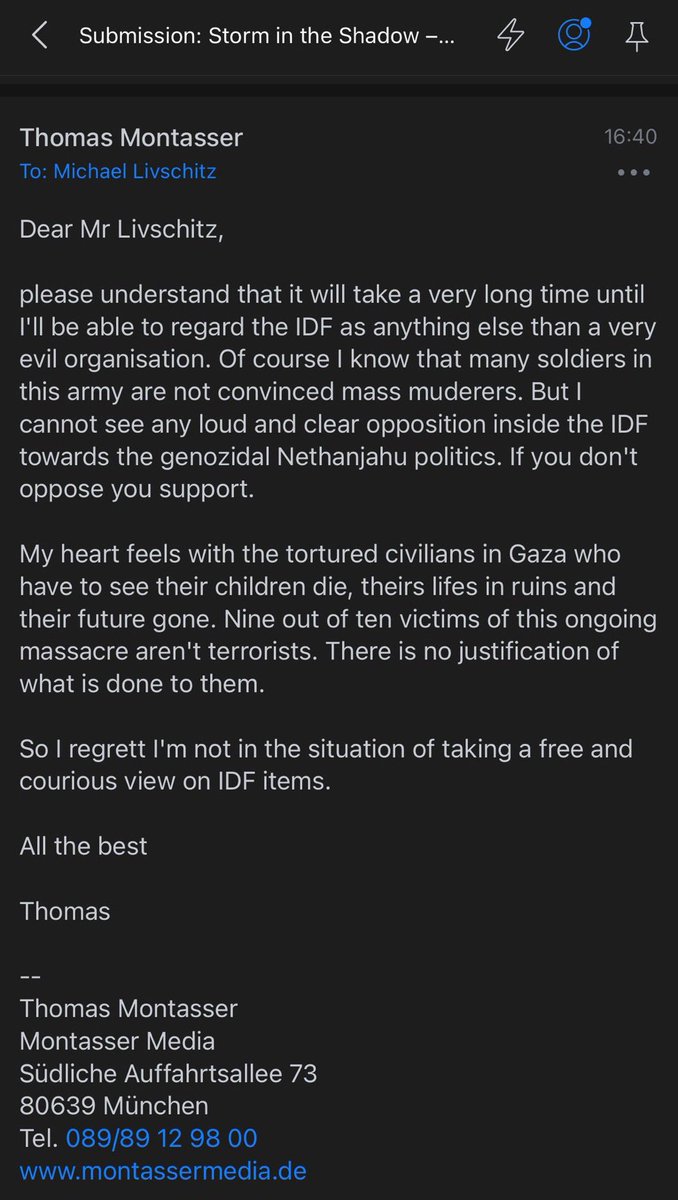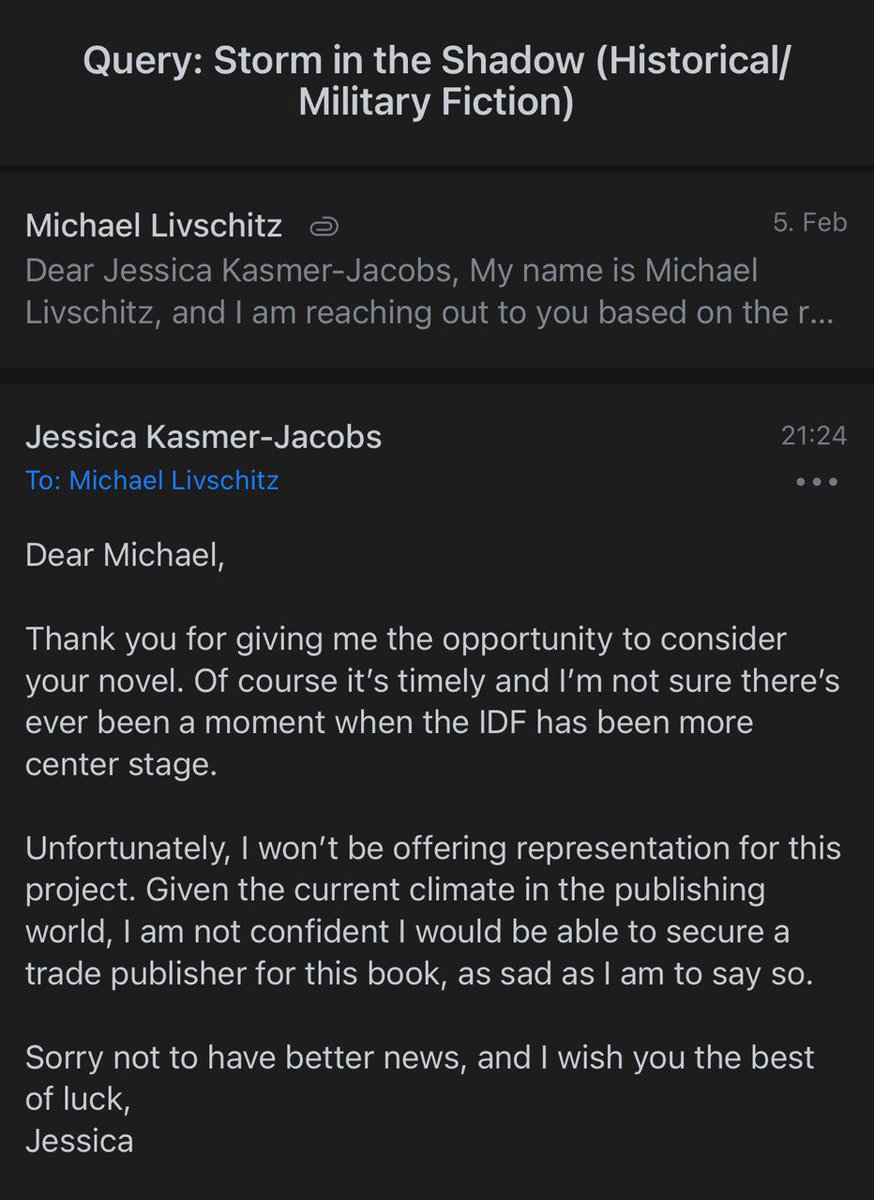1/10🧵🚨 Of all the “big names” in the pro-Israel community, only one person had the courage to publicly stand with my novel. Not a Jewish celebrity. Not a pro-Israel leader. It was @MosabHasanYOSEF — the “Son of Hamas. 
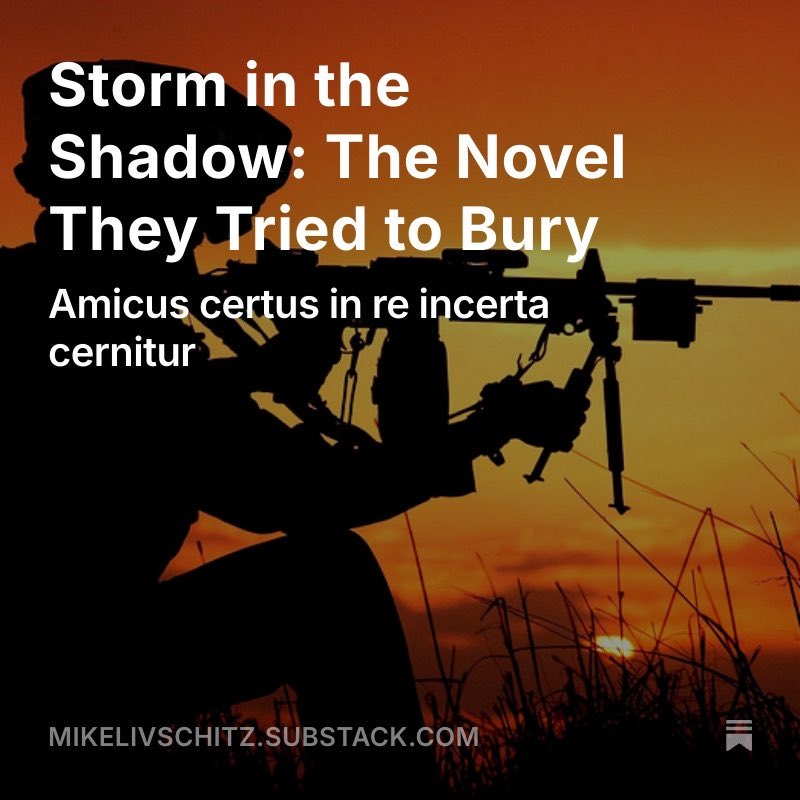
2/10
And I’ll go further: he’s the one person on the planet I would trust to cover my back in real combat without a second’s hesitation. I consider him a friend and a brother. That says something, doesn’t it?
And I’ll go further: he’s the one person on the planet I would trust to cover my back in real combat without a second’s hesitation. I consider him a friend and a brother. That says something, doesn’t it?

3/10
I’ve spent nearly a year fighting to bring Storm in the Shadow into the world. I can say with confidence there’s nothing in literature that examines the inner workings of the IDF with this level of detail through the lens of the Nahal Brigade. The novel doesn’t stop at the rigor of basic training — one of the toughest in the world — it also lays bare the psychology of young men: what they endure; the brotherhood; love; patriotism; and a deep devotion to Israel.
I’ve spent nearly a year fighting to bring Storm in the Shadow into the world. I can say with confidence there’s nothing in literature that examines the inner workings of the IDF with this level of detail through the lens of the Nahal Brigade. The novel doesn’t stop at the rigor of basic training — one of the toughest in the world — it also lays bare the psychology of young men: what they endure; the brotherhood; love; patriotism; and a deep devotion to Israel.
4/10
Against the backdrop of an ongoing global boycott of Jewish and Israeli authors, this novel has been rejected by the literary industry more than 215 times. And it hasn’t stopped: over 1,200 Hollywood actors and industry figures have now signed a pledge to refuse work with Israeli institutions and companies allegedly “involved in genocide and apartheid against the Palestinian people.” The momentum grows. You can, to a point, understand rejections born of bias or intolerance; but when a novel about the IDF shows the army’s actual moral core — an army many rush to demonize while chanting “Death to the IDF” — the masks slip, and you run into naked hatred.
Against the backdrop of an ongoing global boycott of Jewish and Israeli authors, this novel has been rejected by the literary industry more than 215 times. And it hasn’t stopped: over 1,200 Hollywood actors and industry figures have now signed a pledge to refuse work with Israeli institutions and companies allegedly “involved in genocide and apartheid against the Palestinian people.” The momentum grows. You can, to a point, understand rejections born of bias or intolerance; but when a novel about the IDF shows the army’s actual moral core — an army many rush to demonize while chanting “Death to the IDF” — the masks slip, and you run into naked hatred.

5/10
What I didn’t expect was the indifference and detachment I met when I turned for help to public figures who say they support Israel — to large accounts, Jewish editors, pro-Israel literary agents, even English-language Israeli publishers. I know I haven’t reached their heights; perhaps they look down from a distance. But I am fighting a just fight, tirelessly and without self-interest. I defend Israel’s case; I push back against lies and distortions.
What I didn’t expect was the indifference and detachment I met when I turned for help to public figures who say they support Israel — to large accounts, Jewish editors, pro-Israel literary agents, even English-language Israeli publishers. I know I haven’t reached their heights; perhaps they look down from a distance. But I am fighting a just fight, tirelessly and without self-interest. I defend Israel’s case; I push back against lies and distortions.
6/10
Hila Keylin was a member of my family, and on October 7, 2023, Hamas brutally murdered her at the Nova music festival. I was halfway through the novel then and had to stop — I couldn’t recover from that blow or find the strength to write. Six months later I resumed work and finished Storm in the Shadow in September 2024.
Hila Keylin was a member of my family, and on October 7, 2023, Hamas brutally murdered her at the Nova music festival. I was halfway through the novel then and had to stop — I couldn’t recover from that blow or find the strength to write. Six months later I resumed work and finished Storm in the Shadow in September 2024.
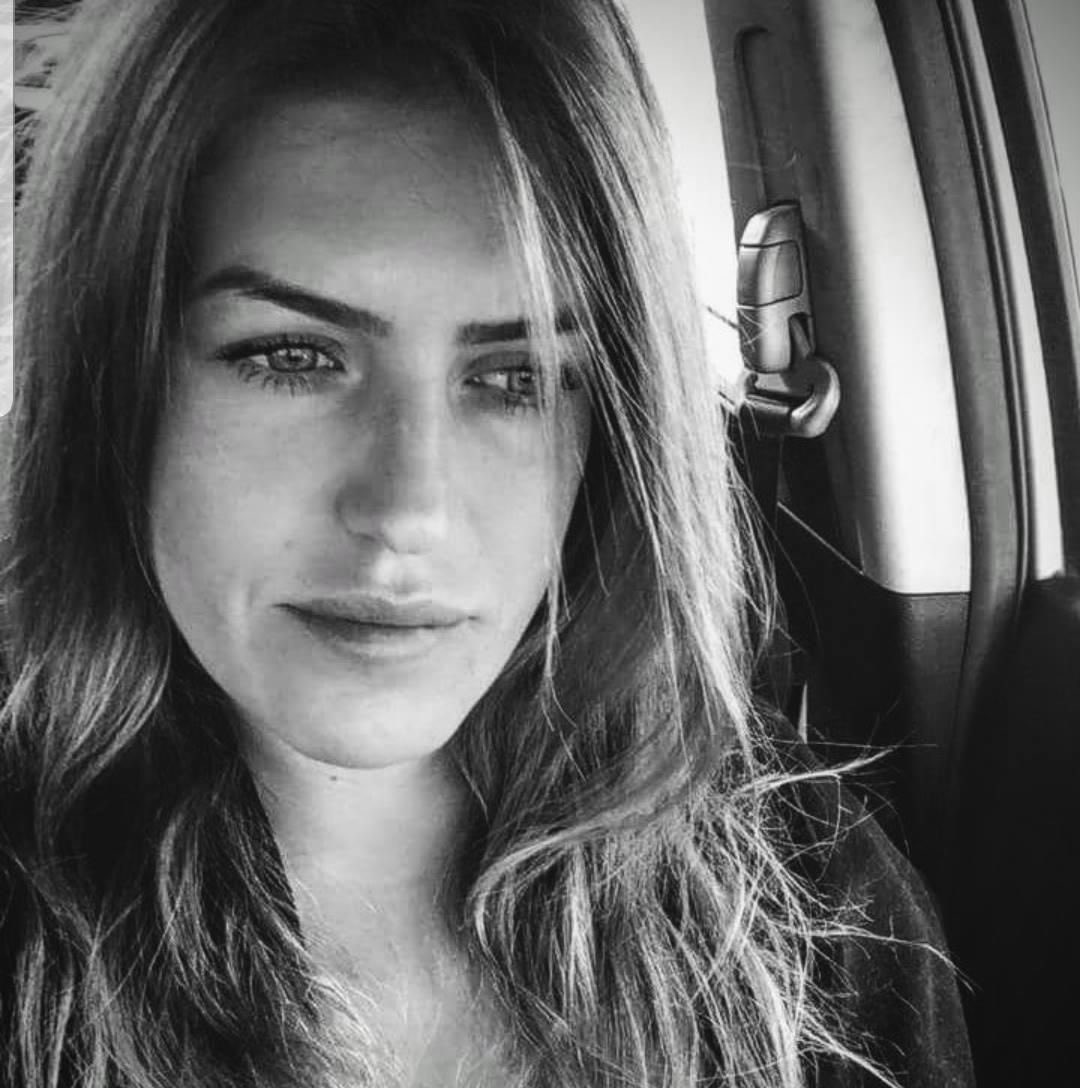
7/10
The horror of October 7th touched every person in Israel. That’s why I expected unity — our fight for human values and against propaganda should rise above everything else. Realizing that not everyone in the pro-Israel camp shares this view hurt more than the rejection of those who have always been against us. It felt like a knife in the back. I understand no one owes me anything — but not one of those many public figures offered a shoulder. First came interest, then silence; one by one they stepped aside without a word.
The horror of October 7th touched every person in Israel. That’s why I expected unity — our fight for human values and against propaganda should rise above everything else. Realizing that not everyone in the pro-Israel camp shares this view hurt more than the rejection of those who have always been against us. It felt like a knife in the back. I understand no one owes me anything — but not one of those many public figures offered a shoulder. First came interest, then silence; one by one they stepped aside without a word.
8/10
At the same time, most ordinary people — many of them not Jewish — stood with me and offered generous support. More than fifty beta readers said the novel’s quality is high, that it grabs from the first pages, and that it deserves to be published. And just recently, Chapter One of Storm in the Shadow was published by Judith Magazine and is now available to anyone who wants to read.
At the same time, most ordinary people — many of them not Jewish — stood with me and offered generous support. More than fifty beta readers said the novel’s quality is high, that it grabs from the first pages, and that it deserves to be published. And just recently, Chapter One of Storm in the Shadow was published by Judith Magazine and is now available to anyone who wants to read.
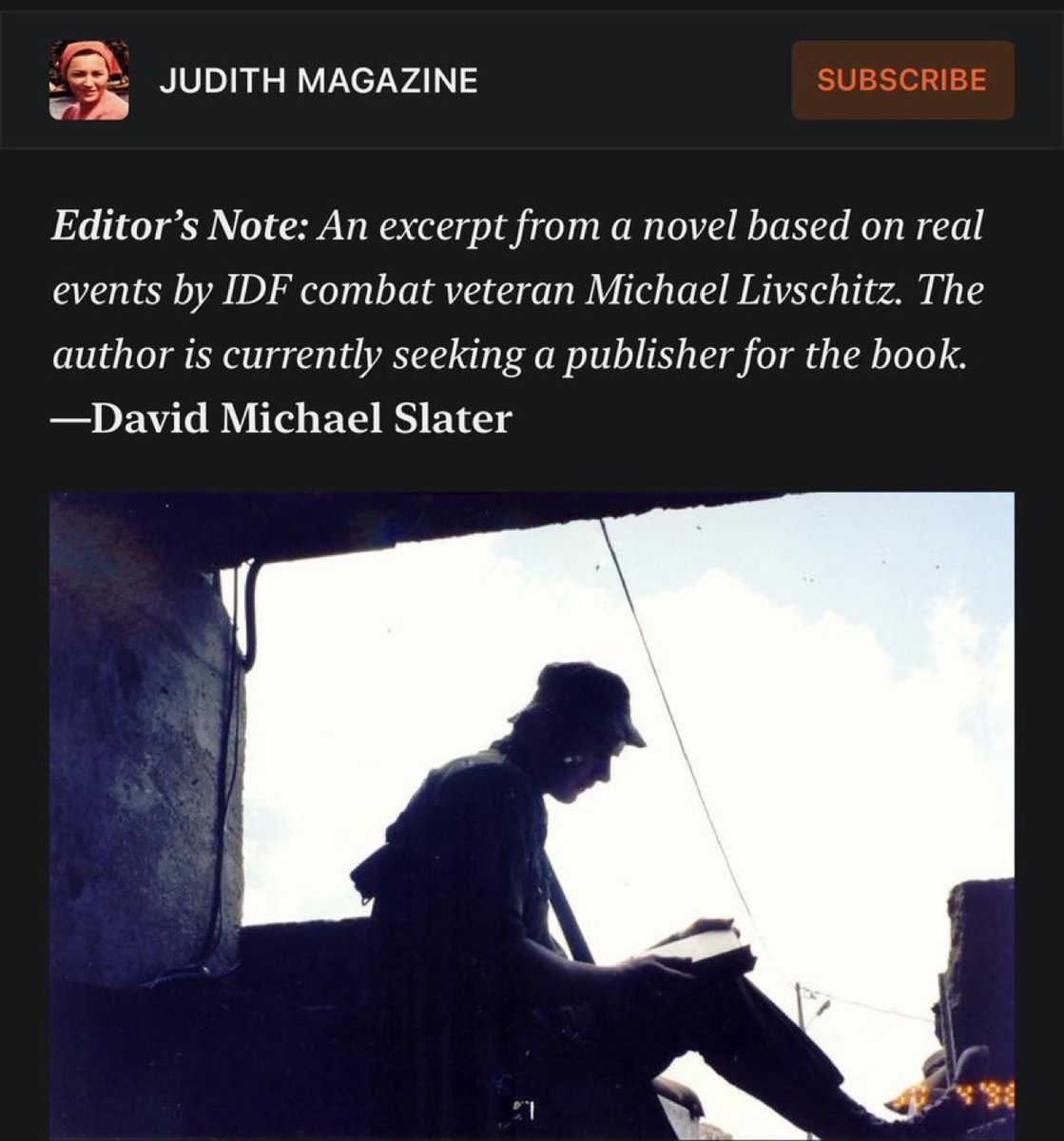
9/10
I’m not chasing popularity. For many big accounts and famous names, that chase shapes their behavior — and that’s how we end up losing, not to our enemies, but first of all to ourselves. Instead of standing together, everyone plays solo. Maybe this post can challenge that unhealthy trend. Take a cue from Mosab Hassan Yousef: he’s looked death in the face more than once and never lost his humanity. His example deserves respect. Storm in the Shadow wrestles with the same questions and shows what unity and brotherhood truly mean — especially when they’re forged under the hardest conditions.
I’m not chasing popularity. For many big accounts and famous names, that chase shapes their behavior — and that’s how we end up losing, not to our enemies, but first of all to ourselves. Instead of standing together, everyone plays solo. Maybe this post can challenge that unhealthy trend. Take a cue from Mosab Hassan Yousef: he’s looked death in the face more than once and never lost his humanity. His example deserves respect. Storm in the Shadow wrestles with the same questions and shows what unity and brotherhood truly mean — especially when they’re forged under the hardest conditions.
10/10
If you want to read Chapter One, you’ll find the link below. I’d be grateful if you’d share this thread — and for your thoughts and impressions.
Judith Magazine publication:
open.substack.com/pub/judithmaga…
The full text is available as a single post on Substack at the following link:
mikelivschitz.substack.com/p/storm-in-the…
#StormInTheShadow
If you want to read Chapter One, you’ll find the link below. I’d be grateful if you’d share this thread — and for your thoughts and impressions.
Judith Magazine publication:
open.substack.com/pub/judithmaga…
The full text is available as a single post on Substack at the following link:
mikelivschitz.substack.com/p/storm-in-the…
#StormInTheShadow
• • •
Missing some Tweet in this thread? You can try to
force a refresh




